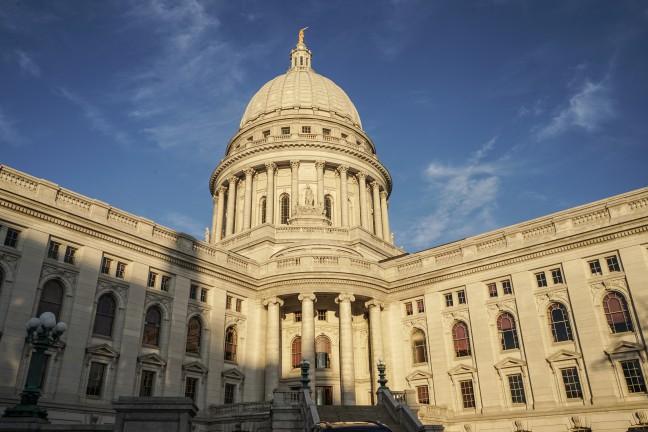Gov. Tony Evers signed the 2019-21 state biennial budget into law with partial vetoes Wednesday.
In a press release, Evers said that the budget delivers on many of the topics he discussed on the campaign trail.
Included is funding for higher education, which was highlighted during the campaign considering Evers’ former role in the education system. The budget allows for a $25 million increase in aid for the Wisconsin Technical College System, over $1 billion in bonding authority to modernize University of Wisconsin System buildings, provides $45 million over the biennium to the University of Wisconsin System for capacity building initiatives and continues to freeze resident undergraduate tuition.
Funding for health communities is also provided. The budget provides over $230 million to support workers who provide direct care to those in Family Care, nursing homes, and individuals receiving personal care services. The budget also includes $9.9 million in funding for the Rural Critical Care Hospital Supplement, $14.2 million in lead testing and abatement, and almost $30 million to support programs for Wisconsin veterans.
In addition, transportation is addressed. The budget provides over $465 million overall for transportation projects across the state, including a $320 million investment in additional funding for the State Highway Rehabilitation program. It also provides $66 million available in funding for general transportation aids, paid to counties, towns, villages, and cities.
Concerns on taxation were also addressed. Along with AB 251, a bipartisan proposal, the budget provides $518 million in individual income tax relief in the form of income tax rate reductions targeting lower and middle income earners.
“Vetoing this budget would have meant passing up the opportunity to provide investments in special education, the largest general school aid increase in a decade, increased revenue to fix our roads, and critical investments in broadband expansion, Wisconsin shares, child welfare, rural hospitals, and transit, among other important priorities,” Evers said in the press release.
The budget also addresses expanding the Broadband Expansion Grant program, invests in a Dairy Innovation Hub at the University of Wisconsin System, and increases the private bar rate for the Office of the State Public Defender.
Evers, however, said that the budget could have been better, citing partisan divides as a key reason for the partial vetoes.
“Unfortunately, this budget that I have now signed is, in many ways, insufficient,” Evers said. “This is, in large part, due to the unfortunate lack of interest by some Republicans in the Legislature to work together and engage in constructive, bipartisan dialogue, and instead devoting far too much time to huffing and puffing.”
In a statement to members of the Assembly, Evers admitted that he considered vetoing the budget after Republicans “chose political allegiance and scoring political points over the people,” but inevitably chose the progress this budget made towards his budgetary goals.
He added that vetoing the budget would have been divisive, and noted that the budget, even with the partial vetoes, is a good step towards progress.
“When I ran for this office, I said it was time for a change. And I made promises to the people of Wisconsin,” Evers said. “I promised I would put people first, and that is why I am proud we were able to do as much as we did with the budget we were given.”


